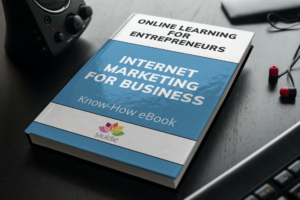When it comes to pay-per-click advertising, Google gives marketers two alternatives. Many choose to advertise in the search results, in the content of websites or both.
When you advertise in search, your results will appear in both Google's search results and those of its distribution partners. Google content advertising is available for websites that have chosen to integrate "Adsense" into their design. As Google AdSense continues to grow in popularity, it can now be seen on millions of websites around the world. Many advertisers, however, avoid this option in favour of only advertising in the search results.
There are several reasons for this, the first of which is a lack of trust. This is due to the fact that both smaller websites and AdSense giants have decided to commit click fraud. Although this problem also occurs in search, it is significantly less prevalent. Those who commit click fraud in search are trying to reduce a competitor's ROI.
The same applies to Adsense and the attempts of website owners to increase their revenue by similar means. The motivation of the customer when they are on a website is another reason why website owners choose to advertise with content. Someone who doesn't advertise on another website may be there for completely different reasons. For example, a website criticising the downsides of Adsense might have adverts for companies selling 'Adsense sites'. People might click on it, but after reading a bad review, they probably won't buy.
Another possibility is that the person who came to the Adsense page was looking for the best colour palette to use. As a result, the user would not consider the advert relevant, but he or she might click on it without hesitation. Advertisers often reject Adsense sites because they believe they require extra administrative effort.
Checking websites for relevance and changing bids to ensure they are still present on a page. This is undoubtedly a time consuming and costly process when some words have a network of over 500 sites. Whilst this is true, many also find that their Adwords account delivers pages that don't appear to support their keywords. A good example of this is the pages that advertise under legal terms on the "Terms and Conditions" and "Privacy Policy" pages of Adwords websites.
Although many people dislike content advertising, some still believe that it has a similar return on investment to search. One explanation for this is the fact that more and more advertisers are only using search as a medium. As a result, the advertiser has less competition and the cost of the word goes down. Advertisers also see a positive return on investment with publishers who actively promote the advertiser's services in their content.
An example of this is when someone talks about printing services and specifically recommends the advertiser's services. This is a fantastic approach for publishers as it benefits both the publisher and the advertiser. Nevertheless, publishers must be careful not to be too overt, as smart consumers will undoubtedly infer the publisher's objective.
Another reason why advertisers opt for content is to increase their reach. However, this can also be achieved via other search engines. The truth remains, however, that those interested in content advertising should utilise the Google Adsense network. It is far more tightly controlled than Yahoo and its competitors, and advertisers benefit from the ability to spread their message across a wide range of websites thanks to its superior network of publishers.
Although Adsense is the leading PPC content intermediary, it pales in comparison to search for advertisers. Leads generated via search are more qualified, more regulated and less false. For this reason, advertisers have repeatedly favoured search over content. Regardless, advertisers should always test AdSense to determine if it can deliver the desired ROI. Some advertisers claim that content delivers a higher return on investment than search. It varies, but in general, search is still king for PPC advertisers.

